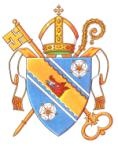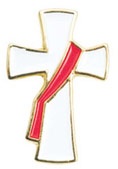

Deacons in the Diocese of Georgia
Theology Competencies
COMPETENCIES
GOAL: This introduction to the Theology Competencies for Candidates for diaconal ministry will inform and prepare the Candidate to demonstrate knowledge and application of Anglican theology according to the Canons of our church, the Book of Common Prayer, and other theological texts.
The Candidate will demonstrate:
1) The ability to articulate the elements of an Anglican approach to theology.
2) A basic knowledge of the theological positions taken in the Catechism of the Book of Common Prayer.
3) An understanding of the historical development and theological meaning of the Apostles’ and Nicene Creeds.
4) The ability to articulate the influences on modern theology of feminist, liberation, gay and lesbian, and/or creation theologies
5) The ability to discuss how theology is relevant to the ministry of a deacon.
6) The ability to express his/her current personal theological perspective using the categories of systematic theology.
Required Reading:
McGrath, Alistair E. Christian Theology: An Introduction, 4th ed., Blackwell Publishing, 2007.
This is an excellent comprehensive reference. At a minimum, please read Chapters 1-4, 6, 9- 11, 13-16. Please also read Chapter 5 pages 101-111.
Johnson, Jay Emerson. Dancing with God: Anglican Christianity and the Practice of
Hope . Morehouse Publishing, 2005
Johnson, Luke Timothy. The Creed: What Christians Believe and Why It Matters. Doubleday, 2003.
Catechism, BCP.
Recommended Reading:
McIntosh, Mark. Mysteries of Faith (The New Church’s Teaching Series, Vol.8). Cowley, 2000.
This book contains an excellent list of resources for further exploration in theology.
Postulants and candidates are, of course, encouraged to pursue reading the writings of any theologian who interests them
ASSIGNMENTS FOR THEOLOGY COMPETENCY
Papers may be submitted electronically as Word documents, or on paper, or via papyrus scroll. Regardless of how you choose to submit the papers, please double space them, and get them to the examining chaplain two weeks before the scheduled DSM weekend.
A couple of tips: The whole point of this competency is to for you to begin to reflect theologically as future Episcopal clergy. There are no definitive “right or wrong” answers to theological questions, but there is such a thing as an opinion based on informed, well-reasoned, and thoughtful theological reflection. In the assignments below and in our discussions at the weekend, please avoid taking a shallow approach of making statements such as “I really like Paul Tillich”, or “I think this or that”, without being able to explain your statement. If there is something in Tillich’s theology or a particular theological viewpoint that is especially relevant to you, you need to think through why that is the case. You also need to think about the limitations of that point of view and about possible alternative points of view.
Also, please do not represent the thought of others as your own. You may cite anyone you wish, but acknowledge in your paper where the idea originated. You do not need to be overly formal or obsessive- compulsive about this. If the reference is from one of the assigned texts, just put author and page number in parentheses in your essay, e.g., (McGrath, page 108). If it is an idea for which you do not have the specific reference but you know the theologian, cite the reference by saying something like “I agree with Tillich that God is the ultimate ground of being.”
With that said, please complete the following short essays and the long essay.
Short essays (500-750 words each):
1) What is meant when someone says that Anglican theology is Incarnational? Why does that matter?
2) Marsha’s three year old daughter accidentally drowned five years ago in a nearby pond. Marsha tells you that since that time, she can no longer believe in God. She says if there was a God, God would not have let that tragedy happen. She wonders how you view the problem of evil and human suffering. What would you tell her?
Long essay (1500-2500 words). Please bear in mind that you do not have to cover each topic below in great detail, because: 1) We will be discussing these at the DSM weekend; and 2) there is no way you could possibly do that in a paper of this length. Do write some reflection on each of the topics:
1) What is your current personal “systematic theology”? Please discuss briefly each of the following, noting any sources of authority or theologians who might agree with you:
a) What are your sources of authority?
b) Who is God and how can we know about God?
c) What is the Trinity and what is the relevance of the Trinity?
d) Who is Jesus Christ and why does He matter?
e) How are we saved? From what are we saved? For what are we saved?
f) What is the Church?
g) What are the Sacraments and why do they matter?
h) What makes your answers to a-g above identifiably Anglican/Episcopalian in their approach? What makes them uniquely yours?
Come to the weekend prepared to discuss your papers and also participate in some exercises